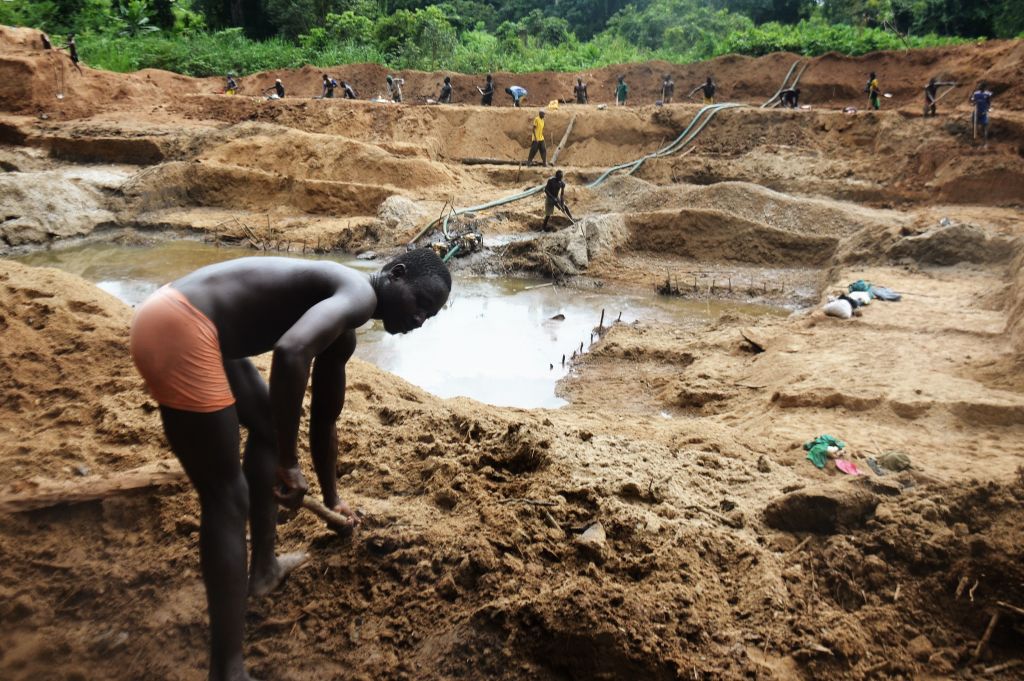ADF STAFF
From southern Sudan to central Mali, the stories are almost identical: Russian-speaking men, sometimes accompanied by local soldiers, enter a community and brutally attack and kill residents.
The Russian speakers belong to the Wagner Group, a Moscow-backed mercenary organization that Russian President Vladimir Putin uses to acquire both influence and natural resources in some of the world’s most unstable nations. Wagner is operated by Putin confidant Yevgeny Prigozhin.
“The fallacy of Wagner is that they’re there to provide security services,” Joseph Siegle, director of research at the Africa Center for Strategic Studies, told ADF in an interview. “They’re there to keep proxies in power, and they’re there to capture whatever revenue they can.”
Whether pursuing gold in Sudan and Mali, diamonds in the Central African Republic (CAR), or oil in Libya, Wagner’s operations help Putin finance his invasion of Ukraine.
Despite its pretense of helping governments quell rebellions, Wagner has no interest in peace, Sorcha MacLeod of the U.N. Working Group on the Use of Mercenaries told Vice News.
“By definition, they want the conflict to continue,” MacLeod said.
Sudan
Originally invited into Sudan by then-dictator Omar al-Bashir, the Wagner Group strengthened its position after his 2019 overthrow by working closely with Gen. Mohamed Hamdan Dagalo, also known as Hemedti, and his Rapid Support Forces, who are accused of human rights abuses in the Darfur region and elsewhere.
Wagner is accused of attacking artisanal gold miners in southern Sudan near the border with the CAR. It has also been caught smuggling gold disguised as cookies out of Khartoum.
Wagner’s support for Hemedti includes disinformation designed to undercut his chief rival, Gen. Fattah al-Burhan, who led the 2021 coup that interrupted the transition to civilian rule.
Propaganda designed to build support for Russia and the junta has backfired, however.
“They’re attempting to create a pro-Putin environment,” Siegle told ADF. “But it has not succeeded because the citizens are fed up with the military government.”
Central Africa Republic
The Wagner Group has been active in the CAR since 2018. Since then, Wagner fighters have attacked communities across the country, including the killing of 30 civilians in late 2021.
Recently, CAR citizens have reported a new Wagner tactic: kidnapping children to work in the gold and diamond mines to help fund Russia’s invasion of Ukraine.
Florencia Pirioua told The Daily Beast, an American news website, that Russian soldiers snatched her 13-year-old son along with other male children from the community of Boko-Boudeye.
“If you don’t let go, they’ll break your hands,” said Pirioua, who has fled to Cameroon.
Witnesses told The Daily Beast the children are replacing artisanal miners who have been killed or fled the country.
The kidnappings have created anger and resentment.
“Very soon, we’ll return to our country to look for our children,” Pirioua said. “Those white soldiers have to bring back our sons.”
Libya
Despite reports of Wagner fighters leaving Libya to support the Ukraine invasion, most mercenaries in the country are staying put, according to researcher Ferhat Polat at the TRT World Research Centre.
“The Kremlin wants to have a stake in Libya’s future and needs these foreign mercenaries to maintain their hold on the country,” Polat told Al Jazeera.
Wagner fighters are taking advantage of Libya’s competing governments to keep their hold in the country, Salah El Bakkoush, former adviser to Libya’s High Council of State, told Al Jazeera TV’s “Inside Story.”
“You can’t talk to the Russians and tell them to get out of the country because they tell you ‘the other government wants us here,’” El Bakkoush said.
Mali
Since the Wagner Group arrived in 2021, civilian deaths have accelerated sharply, according to analysts at the Armed Conflict Location & Event Data Project (ACLED).
“Overall, 71% of Wagner’s engagement in political violence in Mali has taken the form of violence targeting civilians,” ACLED analysts reported recently.
ACLED has recorded nearly 500 civilian deaths since the arrival of Wagner, a figure that includes the massacre of hundreds of people over several days in the community of Moura in March.
As in Moura, Wagner and Malian forces frequently target the Fulani people, whom they accuse of supporting extremist groups. This targeting has led to fear and resentment in Fulani communities.
As in other countries, Wagner’s expanding footprint in Mali spurs further fighting rather than bringing peace.
“These decisions made to help the junta stay in political power are making it harder for them to deal with the underlying instability,” Siegle told ADF.

